My Turn: Spy cams on our public lands — Massachusetts must make rules
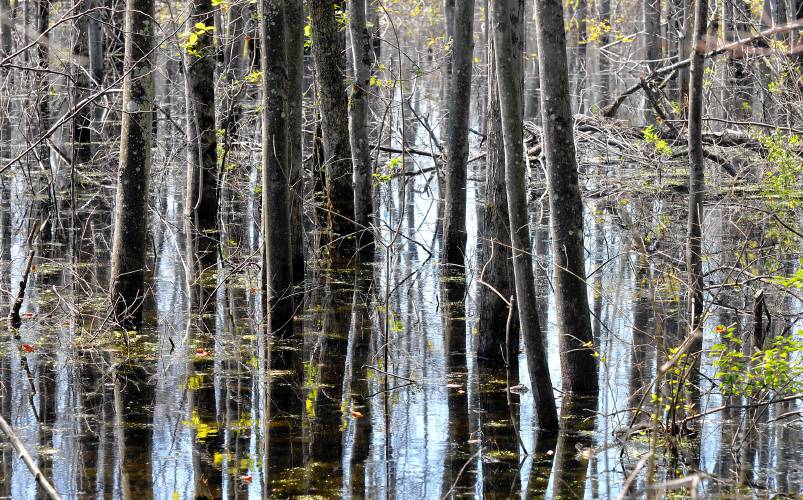
FILE PHOTO FILE PHOTO
| Published: 03-10-2025 6:13 PM |
For many (if not all) of us, taking a walk in a place without pavement brings us a feeling of well-being. For this reason, lands have been set aside, made public and protected for recreational purposes. At a moment when studies reveal a troubling deterioration of mental health on a national level, our undeveloped public lands provide a perennial reserve of mental and physical rejuvination.
These lands are actually part of our industrial culture’s immune system. In them, we experience a part of ourselves that is not totally constructed by social media, politics, finance and culture wars. This part of ourselves is ancestral, originating as far back as our ancient great, great (etc.) great-grandparents.
This feeling of strength, of toughness, of resilience is felt by the hiker, even if the tracing of it to ancestors is not felt. But it is important to know that no matter who we are, we came from unpaved origins.
Presently, on our public lands, a person can put up a video cam that satellite streams our voices and images into their computer without our consent and possibly without our awareness. We have no idea who is recording us or what they do with our voices or images, which are actually — unless we give our consent — our personal property. For these reasons, it is imperative that we, the citizens of Massachusetts, regulate spy cams on our public trust lands like other states such as New Hampshire have.
There is a drastic difference between a spy cam set up in a big box parking lot and one secretly placed in a public forest, beginning with the fact a big box entity has the legal right to protect its private property by setting up security systems. We see signs when we park and also when enter buildings that tell us that we are being monitored by surveillance devices, and we accept this surveillance because we understand we are on private property when we are shopping. No such understanding or acceptance exists regarding private spy cams on public lands.
There are reasons that the use of spy cams can be justified on our public lands, including those used by hunters and ecologists. Our public lands are, however, managed for multiple purposes, which means that “passive recreationists” have as much right to enjoy the lands as hunters and ecologists do.
There are rules that our Department of Conservation and Recreation uses to balance and regulate these multiple purposes — but presently there is no rule that prevents a spy cam user from streaming your person into their private computer for their private purposes that you have not consented to. You don’t even know who is videoing you!
Due to the absence of rules, a spy cam user can set up a dozen (or hundred) surveillance devices, effectively gaining private control of the public land, and leave them up year-round, without having to disclose who they are or what they are doing with the property that is our person.
Article continues after...
Yesterday's Most Read Articles
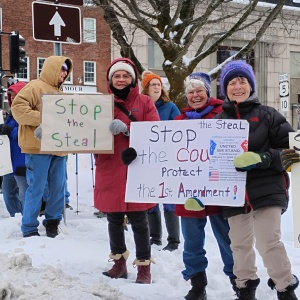 Local ‘Hands Off!’ standouts planned as part of national effort
Local ‘Hands Off!’ standouts planned as part of national effort
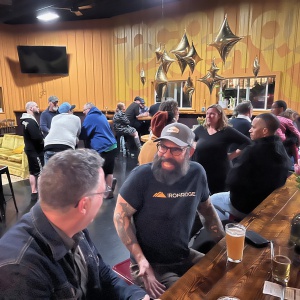 Incandescent Brewing now open in Bernardston
Incandescent Brewing now open in Bernardston
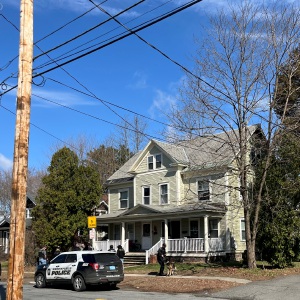 Two arrested on drug trafficking charges in Greenfield
Two arrested on drug trafficking charges in Greenfield
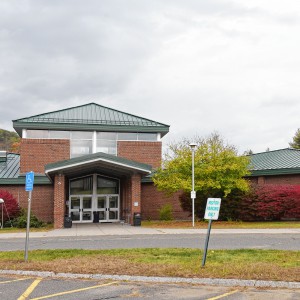 Berkshire DA says no crime occurred in student-officer relationship at Mohawk Trail
Berkshire DA says no crime occurred in student-officer relationship at Mohawk Trail
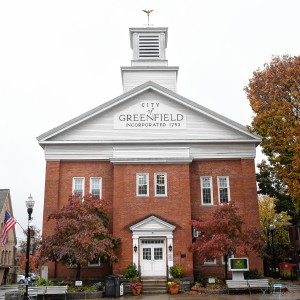 Proposed ordinance would make Greenfield a ‘sanctuary city’ for trans, gender-diverse people
Proposed ordinance would make Greenfield a ‘sanctuary city’ for trans, gender-diverse people
 Sounds Local: A legend pays tribute to an icon: Seven-time Grammy-nominated Joan Osborne brings Bob Dylan repertoire to Shea Theater
Sounds Local: A legend pays tribute to an icon: Seven-time Grammy-nominated Joan Osborne brings Bob Dylan repertoire to Shea Theater
Other states have rectified this disturbing situation by legislating rules that regulate spy cams use on public land. For example, spy cams are forbidden on public lands in Arizona, Kansas, Montana, New Mexico, and Wyoming. Other states are less restrictive; in Utah, they are illegal from July 31 to Dec. 31, and in Nevada from July 1 to Dec. 31. Oklahoma requires registration and conspicuous identification of cameras. In New Hampshire, a spy cam can’t be used for hunting on the same day as recording, and must be conspicuously identified.
Massachusetts has no rules at all, and the result, a member of the Massachusetts Environmental Police told me, is anarchy, and conflicts between public land users.
State Rep. Lindsay Sabadosa and Sen. Paul Mark deserve credit for convening a meeting a year ago with DCR to establish rules for spy cams on our public lands, but they were informed recently that DCR has done nothing to work on this issue. This is very disappointing. Every day that passes leaves recreational users of our public lands exposed to an invasion of their personal privacy by the recording of their voice and image without regulation or their consent.
The time has come for Massachusetts to regulate the use of spy cams on public trust lands. Ideally it will be modeled on New Hampshire’s, where a spy cam user must register to receive a permit to use it and that camera be conspicuous and tagged with an ID that can be traced to the user if the permit is abused. If spy cams are not registered, permitted and tagged, they can be disposed of as garbage by any citizen — as is the rule in California.
Kurt Heidinger lives in Westhampton.






 As I See It: How liberty itself killed liberalism in America
As I See It: How liberty itself killed liberalism in America My Turn: Invest in hunger-free campuses to make free college truly work
My Turn: Invest in hunger-free campuses to make free college truly work Beth Girshman: Support federal funding of libraries and museums
Beth Girshman: Support federal funding of libraries and museums Dale Moss: Trump, Musk actions will cause long-term damage
Dale Moss: Trump, Musk actions will cause long-term damage
